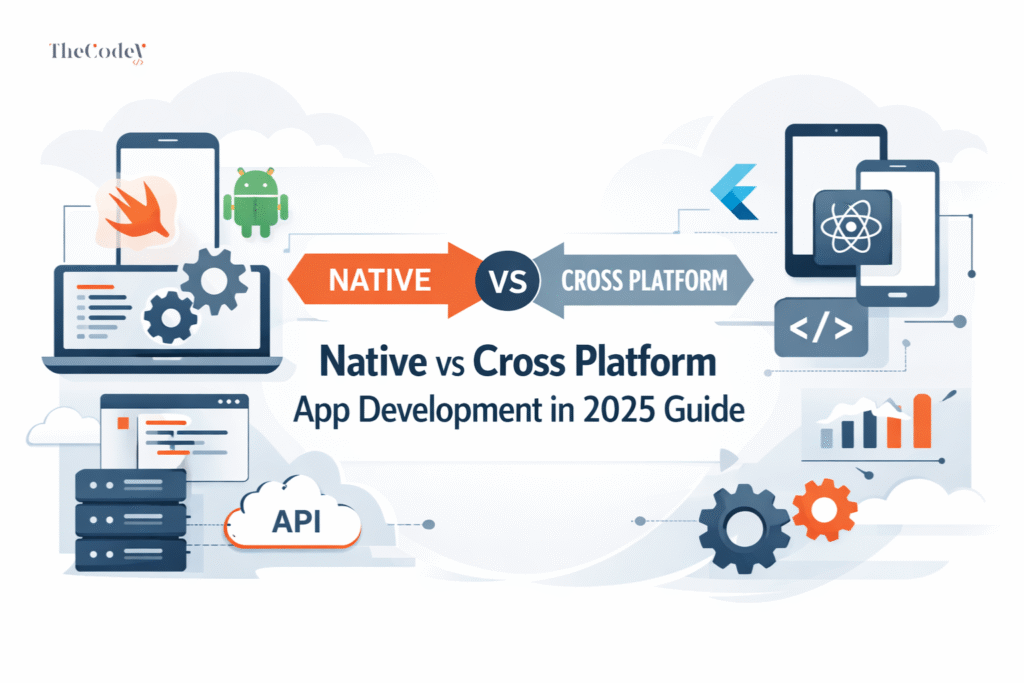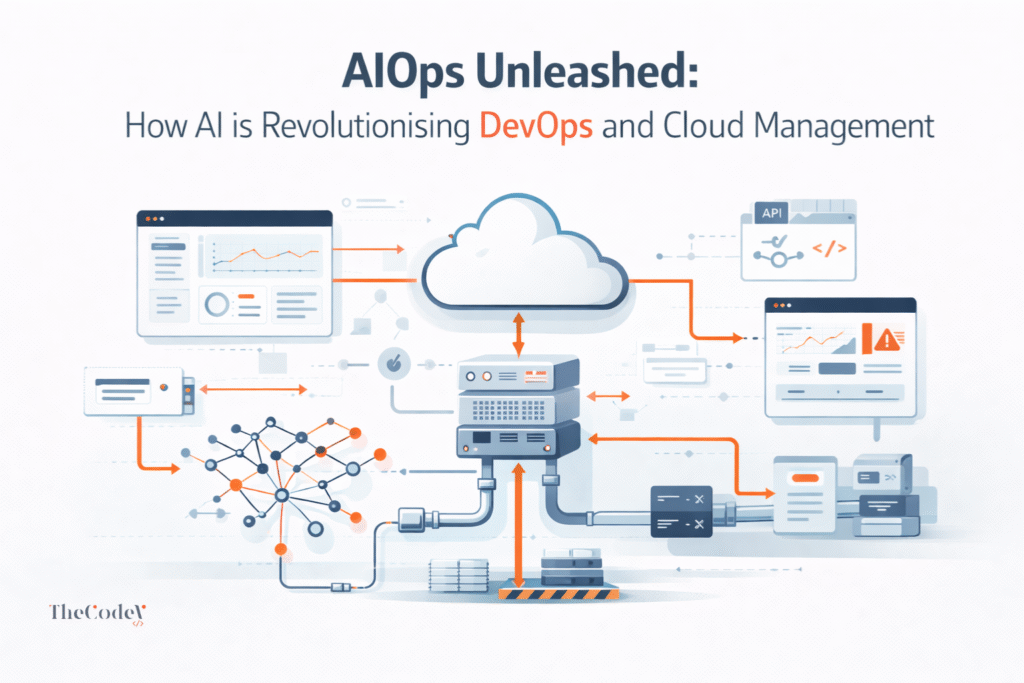In an era defined by digital acceleration and disruptive innovation, Artificial General Intelligence (AGI) stands poised to revolutionise not just how we live and work, but how we build the very technologies that shape our world. Imagine software that can design, test, debug, and even innovate—without needing human instruction. This isn’t the realm of science fiction; it’s the approaching reality driven by AGI. For software developers, AGI represents a seismic shift, one that could redefine programming, problem-solving, and the entire lifecycle of AI software development.
Before delving deeper into AGI’s impact, it’s crucial to distinguish it from the AI technologies we know today. Most current AI models are examples of narrow AI—intelligent systems trained for specific tasks, such as image recognition, natural language processing, or recommendation algorithms. These models are powerful, but inherently limited. They can outperform humans in singular domains but falter when tasks fall outside their training data. AGI, on the other hand, aims to transcend these limitations.
Artificial General Intelligence refers to highly autonomous systems capable of performing any intellectual task that a human can. Unlike narrow AI, which operates within tightly defined parameters, AGI would exhibit generalised learning, abstract reasoning, and contextual adaptability—traits we associate with human intelligence. In essence, an AGI wouldn’t just follow instructions; it would understand them, reinterpret them, and even improve upon them.
This leap from specialised to generalised intelligence is significant for software development. The potential for AGI to independently write and optimise code, conduct logic-based problem-solving, and adapt to evolving requirements could streamline complex development processes and free developers from repetitive tasks. It would usher in a new paradigm of future software trends, where the line between tool and collaborator blurs.
However, with this potential also comes uncertainty. How do we prepare development teams to collaborate with non-human intelligence? What skills will remain relevant when AGI can design entire systems? How do we ensure that AGI-built applications remain ethical, secure, and aligned with human values?
These questions underline the importance of engaging with AGI not as a distant concept, but as a present consideration in strategic planning, hiring, and innovation. Forward-thinking businesses, like those supported by TheCodeV’s Digital Services, are already exploring intelligent automation and ethical AI design. As AGI moves from theory to prototype, staying ahead of the curve becomes not just a competitive advantage—but a necessity.
To learn more about how we enable businesses to evolve through cutting-edge software development and AI integration, visit TheCodeV’s Homepage.
How AGI Will Revolutionise Software Development
The arrival of Artificial General Intelligence (AGI) is poised to usher in a new era of innovation and disruption, particularly within the field of software development. Unlike today’s narrow AI tools that assist developers in isolated tasks, AGI will possess the ability to independently perform complex, high-level functions across the entire software development lifecycle. From ideation to deployment, AGI will enable a degree of intelligent autonomy that far surpasses traditional tools, fundamentally transforming how digital products are conceived and delivered.
From Software Automation to Intelligent Engineering
One of the most immediate and visible impacts of AGI will be in software automation. Today’s automation tools—such as CI/CD pipelines, code linters, and auto-suggestion engines—require human oversight and operate within confined parameters. AGI, by contrast, will be able to understand user intent, architectural constraints, and business logic, enabling it to build and refine software systems with minimal human intervention.
For instance, AGI-powered platforms could take a simple project brief and generate a complete software solution: selecting frameworks, designing scalable architecture, writing maintainable code, and testing edge cases—all autonomously. According to MIT Technology Review, AGI could eventually write software in multiple languages and frameworks simultaneously, while dynamically adapting to user feedback and changing requirements in real time.
This level of intelligent autonomy introduces intelligent coding systems, a term used to describe environments where code isn’t just written faster—it is conceptualised, reasoned, and evolved by machines. Developers may find themselves shifting roles from hands-on coders to architectural reviewers or product strategists, where their primary task is to steer the AGI in the right direction rather than manage syntax or structure.
Code Optimisation and Legacy Modernisation
Another major area where AGI will make significant contributions is in code optimisation. Legacy systems are notoriously difficult and costly to maintain, often because they are poorly documented or based on outdated paradigms. AGI can ingest and interpret legacy code, understand its logic, refactor it into modern standards, and even highlight inefficiencies or vulnerabilities.
Gartner has predicted that by 2030, over 40% of legacy software will undergo some form of autonomous code modernisation, powered largely by generalised AI agents. This doesn’t just improve code performance and maintainability; it also accelerates digital transformation efforts across industries.
Collaborative Development and AGI Integration
As AGI systems grow more capable, the developer’s role will become increasingly collaborative. Developers will need to guide AGI agents through high-level objectives, establish ethical boundaries, and evaluate output for quality assurance. This symbiosis could lead to human-AGI coding partnerships, where creativity, domain knowledge, and machine logic merge to produce more reliable and innovative solutions.
Moreover, AGI’s ability to analyse vast datasets and user feedback in real time allows for hyper-personalised application development. Software could dynamically evolve post-deployment, improving user interfaces, logic flows, or feature sets based on observed behaviours without waiting for the next manual release cycle.
Implications of AGI for Software Developers
The rise of Artificial General Intelligence (AGI) has sparked intense discussion across industries—but for software developers, its implications are especially profound. As AGI continues to evolve from a theoretical ideal into a functional reality, it is poised to reshape the very fabric of software engineering, from the skills developers need to the roles they will play in a future increasingly defined by intelligent machines.
Redefining the Developer’s Role
AGI’s capacity to understand, generate, and optimise code autonomously will inevitably transform how software is developed. In traditional workflows, developers are responsible for a broad spectrum of tasks: writing code, debugging, maintaining legacy systems, and collaborating on architecture. With the arrival of AGI, many of these processes may be automated, allowing AGI agents to produce code with minimal guidance.
However, this does not signal the obsolescence of developers. Instead, the role will shift from code producers to strategic overseers. Developers will increasingly focus on defining high-level goals, interpreting business logic, and auditing AGI-generated code for accuracy, ethics, and alignment with human-centred design principles. This transition will give rise to AGI supervisors and AI auditors, emerging roles that require not only technical expertise but also critical thinking and ethical reasoning.
The Evolving Skillset
To stay relevant in this new landscape, developers must adapt by cultivating future-facing software developer skills. According to the LinkedIn Learning 2025 Skills Report, the fastest-growing skills in tech include artificial intelligence, machine learning operations (MLOps), and ethical computing. Developers proficient in these areas will be better equipped to collaborate with or oversee AGI systems.
In addition, communication, creativity, and interdisciplinary thinking will become even more valuable. AGI may be able to replicate logic and syntax, but it will still require humans to contextualise problems, manage stakeholders, and connect technical solutions to real-world use cases.
McKinsey Insights supports this view, suggesting that up to 30% of all current tasks in software engineering could be automated by advanced AI systems by 2030, yet the demand for skilled developers will not disappear—it will shift. The developers of tomorrow will not just write code; they will shape, train, and monitor intelligent systems to build resilient and adaptive software ecosystems.
The AGI Job Market: Risks and Opportunities
Understandably, there is concern that the AGI job market may reduce demand for junior or repetitive coding roles. But this also opens new pathways. Emerging job categories will include AGI prompt engineers, machine reasoning specialists, AGI lifecycle managers, and even “AI ethicists”—roles focused on ensuring AGI systems operate safely and responsibly.
Forward-thinking organisations are already offering upskilling programmes and agile learning environments to prepare their teams. Platforms like TheCodeV’s Career page aim to equip developers with the tools and knowledge to thrive in this evolving ecosystem. By embracing continual learning and adaptability, developers can future-proof their careers and seize the opportunities created by AGI.
As the horizon of Artificial General Intelligence (AGI) draws nearer, so too does the weight of responsibility carried by those who develop, deploy, and manage its capabilities. Unlike narrow AI systems, which are task-specific and typically transparent in scope, AGI introduces profound ethical and societal challenges due to its ability to reason, adapt, and operate autonomously across multiple domains. In the context of software development, ensuring that AGI aligns with human values and remains under responsible control is not merely advisable—it is essential.
The Challenge of Transparency and Explainability
One of the foremost concerns in ethical AI development is transparency. AGI systems, particularly those based on deep learning and neural networks, often function as “black boxes,” where decisions are made through complex internal reasoning that even their creators struggle to interpret. When an AGI writes or modifies code, who can verify the logic, intent, or long-term implications of that output?
According to the World Economic Forum, explainability is a cornerstone of trustworthy AGI. Without it, developers and stakeholders lack the tools to assess whether the AGI’s actions are aligned with legal, organisational, or moral standards. As AGI systems begin to participate in software development decisions—such as implementing security protocols or structuring backend systems—the inability to trace their logic could pose substantial risks.
Bias and Unintended Consequences
Bias in AI is not a new concern, but with AGI, it becomes even more nuanced and potentially damaging. Because AGI systems are trained on vast datasets, they inevitably absorb the latent biases present in the data. When left unchecked, these biases can be encoded into the very software systems AGI creates—discriminating against users, misinterpreting intent, or creating unequal access to features.
For example, an AGI-powered recruitment software system could inadvertently favour certain demographic profiles if trained on biased historical data. In a development setting, this means that ethical review mechanisms must be in place to continuously audit AGI’s design and decision-making processes. OpenAI, in its published AI System Card, highlights the need for iterative alignment—an approach where AGI systems are routinely tested and adjusted based on human feedback to reduce harmful behaviours.
Accountability and Legal Responsibility
Perhaps the most pressing concern is AI accountability. When AGI writes faulty code that leads to financial loss, data breaches, or operational failure, who bears the responsibility—the AGI developer, the software team, or the organisation deploying the system?
The absence of legal frameworks specific to AGI makes this a murky area. As the World Economic Forum stresses, we must urgently develop governance models that include clear chains of accountability, ethical oversight committees, and AI liability clauses in digital contracts. In the meantime, software teams must adopt internal standards to define ethical boundaries and ensure that AGI adheres to company policies and legal norms.
A Privacy-First Approach
Given AGI’s ability to analyse massive volumes of personal and behavioural data, safeguarding user privacy is paramount. Developers must proactively build privacy protocols into AGI-driven software to protect against misuse or overreach. At TheCodeV, we remain committed to data protection, and our Privacy Policy outlines the strict protocols we follow to ensure responsible data handling in all AI-assisted development.
As Artificial General Intelligence (AGI) approaches functional maturity, software companies face a pivotal challenge: how to equip their teams to thrive in an era where intelligent systems may write, debug, and optimise code autonomously. The transition to AGI-driven development will not be merely technological—it will demand cultural, procedural, and educational shifts. For organisations looking to stay competitive, AGI preparedness is not optional; it is a strategic imperative.
Embrace a Culture of Lifelong Learning
The first and most critical step in preparing for AGI is fostering a mindset of continuous learning. Traditional developer skillsets—while still valuable—must evolve to include competencies such as AI ethics, prompt engineering, model interpretability, and human-AI collaboration.
According to Harvard Business Review, organisations that promote learning agility and invest in upskilling are 30% more likely to adapt effectively to emerging technologies. This means offering structured software team training programmes focused on AGI-related tools, frameworks, and use cases. Platforms such as Coursera, Udacity, and OpenAI’s developer guides are excellent resources for hands-on exposure to next-generation AI systems.
Leaders should also create space for exploratory learning—encouraging team members to experiment with AGI-powered code generators, participate in ethical AI discussions, and even simulate AGI-involved workflows within sandbox environments.
Reframe Roles with Agile Adjustments
AGI will inevitably alter the dynamics of agile development. With intelligent agents capable of writing features or executing tasks based on high-level prompts, software teams must redefine user stories and backlog items to include machine-executable directives. Product owners and scrum masters will play a critical role in refining communication protocols to ensure clarity and alignment between human intent and AGI execution.
Teams should consider integrating AGI-oriented sprint retrospectives where they reflect not only on team performance but also on the interactions and outputs of AGI systems. Did the AGI meet expectations? Were its decisions ethically sound? What oversight mechanisms are needed? These discussions can inform governance and ensure safe AGI integration.
Adopt the Right Tools and Infrastructure
To prepare for AGI, software teams must modernise their toolsets and workflows. This includes adopting AI-augmented development platforms (like GitHub Copilot X or Tabnine Pro), scalable cloud infrastructures capable of hosting intelligent models, and robust CI/CD systems tailored for rapid iteration with AGI outputs.
In addition, investing in version control for AI-generated code, AGI audit logs, and model interpretability layers will be essential for maintaining transparency and accountability. Teams should also evaluate their cybersecurity stack—AGI, if misconfigured, could introduce vulnerabilities at scale.
As noted by the Forbes Technology Council, the integration of AGI into software development must be guided by robust DevSecOps principles, ensuring security is embedded at every stage of the lifecycle.
Engage Strategic Consultation
For businesses navigating the shift toward AGI, external expertise can provide a competitive edge. Engaging in professional consultation can help assess readiness, identify skill gaps, and implement AGI-compatible strategies.
The race to achieve Artificial General Intelligence (AGI) is no longer confined to academic circles; it is now a strategic pursuit among the world’s leading technology companies and research institutions. As AGI moves from speculative theory to tangible engineering, the global innovation landscape is being reshaped by AGI research labs, well-funded AI initiatives, and a growing ecosystem of interdisciplinary collaborations. Understanding the major players and current progress in AGI is essential for software developers and tech leaders alike.
Leading Organisations at the Forefront of AGI
Three names stand out as AI industry leaders in AGI development: DeepMind, OpenAI, and Meta AI—each playing a pivotal role in advancing general-purpose intelligence systems.
DeepMind, a subsidiary of Alphabet (Google’s parent company), is widely considered the most advanced research lab in AGI. Known for its AlphaGo victory in 2016 and the revolutionary AlphaFold project, DeepMind is now focused on building artificial agents that learn to solve multiple tasks in simulated environments. Its Gato model, introduced in 2022, demonstrated early signs of generalisation by performing hundreds of diverse tasks using the same neural network architecture. As noted by Wired, DeepMind’s long-term strategy aligns closely with achieving human-level reasoning in digital agents.
OpenAI, originally a non-profit and now a capped-profit corporation, is best known for the GPT series, including GPT-4 and its advanced multimodal capabilities. OpenAI’s strategy involves releasing powerful foundational models and testing their generalisation through APIs and user feedback. Its recent advancements in autonomous agents—such as AutoGPT and custom GPTs—suggest a clear trajectory towards goal-directed systems with reasoning abilities. According to TechCrunch, OpenAI is investing heavily in long-term safety research to ensure that AGI, once achieved, remains aligned with human values.
Meta AI, the research arm of Meta (formerly Facebook), has made significant strides in open-source AI research. Projects like LLaMA (Large Language Model Meta AI) and its work on AI-powered reasoning and memory augmentation highlight Meta’s focus on scalable, interpretable, and ethical AGI systems. Meta’s open research agenda and transparency have earned it praise from the academic community, particularly for fostering reproducibility and global collaboration.
Other notable contributors include Anthropic, Cohere, Anthropos, and AI21 Labs, all of which are exploring various pathways to safe and robust AGI. Several academic institutions—like MIT, Stanford’s HAI (Human-Centered AI Institute), and the University of Toronto’s Vector Institute—are also deeply involved in AGI-aligned research.
Investment Trends and Forecasted Timelines
The global race toward AGI has spurred massive financial investment. According to a 2024 McKinsey report, venture capital investment in general-purpose AI surged past $25 billion last year, with over 40% directed toward AGI-specific research. Governments, too, are stepping in—China, the EU, and the US have launched state-backed AGI initiatives, each with strategic implications for national competitiveness.
Forecasting AGI’s arrival remains speculative, but a growing consensus suggests that proto-AGI systems may emerge between 2028 and 2035, depending on breakthroughs in reasoning, interpretability, and memory. While some experts remain cautious, others argue that current models already exhibit early forms of general intelligence.
At TheCodeV, we closely monitor these developments to align our software and AI strategies with the future of intelligent systems. Our commitment to innovation and ethical integration ensures that our clients remain at the forefront of emerging technologies.





One Comment
Great work! This is the type of information that should be shared around the net. Shame on the search engines for not positioning this post higher! Come on over and visit my site . Thanks =)